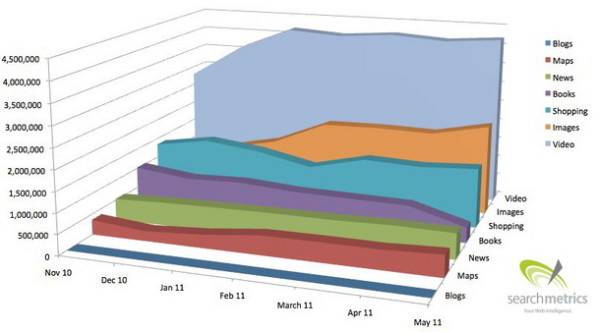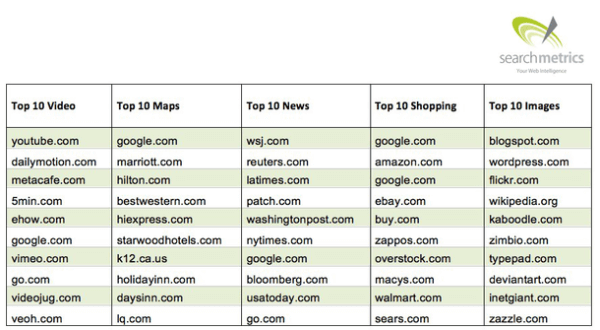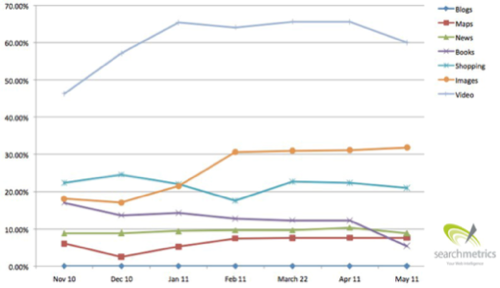New data from Searchmetrics indicate that Google is making precise adjustments to their search result algorithms that, at least in some cases, help drive traffic to Google’s own Web properties. There’s not enough evidence to imply causation, but the noticeable increases in video and image results, both of which are dominated by Google properties, would fit with a pattern of accusations that Google’s search results favor its own sites.

The data show sharp increases in the number of image and video results, with video now returning for 60% or more of all searches. The number 1 sites for video and image results are YouTube and Blogger respectively, both of which are Google properties. Google also dominates maps and shopping results.

Google is not the only company to benefit from the new arrangement, and sites that made their SEO moves toward Universal Search early, including many in the travel industry, sit comfortably near the top of their categories. The Wall Street Journal is at the top of news results, which suggests a shrewd SEO strategy and points to the success of its paywall exception for clicks from Google results.

But it’s clear from the data that Google’s own sites benefit from its way of handling search results. These practices have led to the beginnings of antitrust investigations in the U.S. and Europe, (Update, 10:23 a.m.) including new accusations today.
The case against Google is not airtight, and their response to news of the investigation was confident. But in the meantime, they’ve continued to impose changes that worry competitors, such as their recent decision to push place results from other sites, like Yelp, TripAdvisor, or Qype, to the bottom of Google Places results pages.
It may very well be that Google properties just happen to have the most relevant results in many categories, but it’s also clear that Google’s ad-driven business requires lots of traffic its many content sites. The Searchmetrics data provide a snapshot of the fine tuning Google does to its Universal Search algorithms, and it’s hard to ignore the money Google makes off of these results.

Searchmetrics analyzed the top 100 search results displayed by Google for a set of approximately 28 million search terms between November, 2010 and May, 2011. The study looked at “universal” search results, which are the returns in different media categories, such as “Shopping for…”, “Places for…”, “Videos for…”, when you enter any query into a regular Google.com search.
Google launched Universal Search in 2007, which disrupted the search business and began the ongoing process of merging media-specific Google searches all into one place.

















